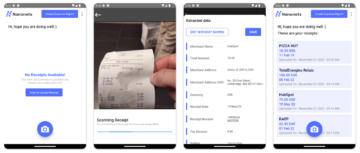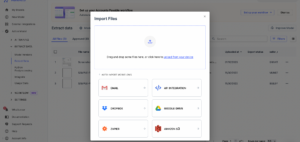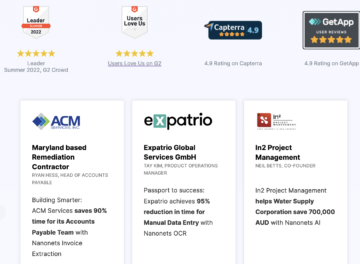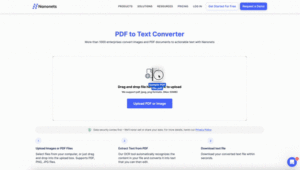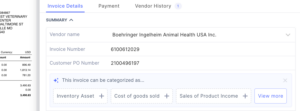
CFDI is an electronic invoicing (e-invoice) standard and related process required to conduct business in Mexico and Latin America. This article focuses on Mexico’s digital transformation program requiring CFDI-compliant electronic sales invoices instead of paper-based invoices in Mexico.
What is CFDI?
CFDI (Comprobante Fiscal Digital por Internet) is a government standard for conducting business in Mexico and Latin America that requires issuing electronic sales invoices (e-invoicing) and other e-documents in a specified format instead of using paper documents, and electronically sharing those documents with tax authorities. For taxpayers, CFDI is a digital tax receipt that allows tax deductions.
An e-invoice in Mexico, which was originally used in 2004, is referred to as a CFDI. Mandating CFDI for large businesses began in 2010. By 2014, all businesses were required to comply with an earlier version of CFDI. Version 3.3 became effective in 2017.
Besides requiring CFDI 4.0 standard-compliant electronic sales invoices to do business in Mexico, the country’s CFDI regulations also require using related electronic credit notes, payment receipts, and payroll invoices.
Who is Involved in CFDI?
In Mexico, the e-invoicing CFDI process involves businesses issuing e-invoices, their e-invoiced customers, e-invoicing generating software, PAC middlemen examining and validating e-invoices for the government, and Mexico’s tax authority, (SAT).
PAC means a third party that is an Authorized Certification Provider (Proveedor Autorizado de Certificación) approved by the Mexican tax authority, SAT. The abbreviation, SAT is an acronym for Servicio de Administración Tributaria.
With its complexity, lawyers and CPA firms are also getting involved in CFDI to advise clients. The scope of CFDI has even reached into the M&A transaction sphere, but not without legal pushback challenges.
Why is CFDI Important?
CFDI is important because it enables efficiency through document digitization and electronic sharing and helps Mexico and certain Latin American countries enforce tax compliance by viewing validated business transactions almost immediately.
From another viewpoint of importance, if companies don’t comply with CFDI, they can receive SAT sanctions and penalties, preventing them from doing business in the CFDI country and costing money. If not yet barred from the country’s business, companies will experience delays in receiving customer payments until they achieve CFDI compliance.
CFDI Version 4.0
CFDI 4.0 is currently the latest version of the CFDI standard in Mexico for submitting electronic documents like sales invoices, instead of paper documents, when doing business in that country.
Effective January 1, 2023, CFDI requires businesses to submit compliant electronic sales invoices (and other CFDI-covered documents, excluding payroll e-invoices) in Mexico. The implementation date for payroll e-invoices was delayed by three months until April 1, 2023.
How Does CFDI Work?
The CFDI process works with these steps:
- The business electronically connects with a PAC and obtains an electronic signature key called Firma Electronica Avanzada (FIEL).
- The business uses a CFDI-compliant e-invoice generator and digitally signs the XML-formatted electronic sales invoice that follows CFDI 4.0 standards.
- The PAC validates the e-invoice, applies a Digital Seal upon validation, and assigns a folio number to the CFDI.
- The PAC sends the validated e-invoice with the digital seal to your business to send to the customer (either in XML or PDF format).
- The PAC, immediately upon validation, digitally reports the CFDI electronic invoice to the SAT tax authority.
- The SAT includes the e-invoice in the tax portals of the issuer and the customer.
- SAT requires this CFDI digital tax receipt to allow tax deductions by taxpayers.
- SAT issues a government sanctions list, initiates tax audits, and investigates tax avoidance schemes.
To get started with CFDI compliance, find a PAC and software company authorized to generate e-invoices for your company to conduct business in Mexico or geographic areas of Latin America, where CFDI is required. Nanonets lets businesses generate CFDI-compliant electronic sales invoices through its automation software platform.
How to Comply with CFDI Requirements?
To comply with CFDI requirements in Mexico, follow the current CFDI 4.0 (or any later-issued) standard requirements for using e-invoices and canceling a CFDI that was previously issued. Also, consider the CFDI requirements for any other related CFDI electronic documents that may be referred to as “complementos” addendums.
The digital tax receipt (CFDI e-invoice) includes product or service revenue, cost, and taxes to enable the SAT tax authority to receive validated electronic information within 3 days of transaction time for enforcing tax collection in Mexico.
Standard requirements for CFDI 4.0 e-invoicing are:
- XML data format for e-invoices
- Digital signature of the e-invoice issuer
- Digital Seal as a second digital signature by the PAC after invoice validation
- Standard format, including a two-dimensional barcode, linking to SAT for e-invoice validation by the PAC and enabling printing of the digital invoice
- Electronic archiving of CFDI documents for five years, with business and customer access
- Information requirements added by CFDI version 4.0
- Name of business sender or receiver
- Postal code
- Recipient’s tax domecile
- Primary sector
- Specify if export
- Indicate if subject to tax, including indirect taxes
- Changes in the information and validation rules under CFDI 4.0
With CFDI 4.0, the following changes have been made to CFDI cancellation rules:
- Must indicate your choice of 4 CFDI cancellation reasons and substitute the CFDI with a specific numbered folio
- Service response codes have changed
- CFDI cancellations must be validated as occurring in the fiscal year in which the CFDI was originally issued
- The customer must approve the CFDI cancellation within 72 hours
Related e-documents affected by the CFDI regulations include:
- Version 2 changes to the payment receipt complement for a Type P CFDI, used for receiving partial payments or deferred payments
- Validation rule changes
- Is payment subject to tax?
- Transferred or Withheld taxes?
- Withholding CFDI for tax withholding
- Payment information for payments by resident taxpayers made out-of-country
Challenges and Solutions for CFDI Compliance
Challenges with CFDI compliance include the wide-ranging rules and complexity of e-invoicing. When making cross-border payments, these regulations are different than the normal rules of your home country. If your business doesn’t follow CFDI regulations, it could be barred from doing business in CFDI jurisdictions.
Businesses issuing e-invoices must follow the exact XML formatting standards and keep up with changes to these CFDI standards. CFDI rules are issued in Spanish, which requires an understanding of the language or access to accurate translations. Most businesses need help to get it right, collect B2B payments quickly, and continue doing business in Mexico or other CFDI-regulated countries in Latin America.
Your company needs to overcome electronic invoice vs. sales order CFDI challenges. Nanonets keeps current on the CFDI global regulatory requirements and lets businesses efficiently generate CFDI-compliant electronic sales invoices (e-invoices) through its automation software platform that works with different data formats and includes advanced document capture.
Conclusion
Following CFDI requirements is essential for doing business in Mexico and some other countries using CFDI rules. Technology solutions like Nanonets can help automate workflow requirements, such as those required for CFDI, and quicken your company’s order-to-cash process.
Nanonets is an automation software company with accurate AI/machine learning-driven OCR solutions, invoice data extraction, and business process workflows. Nanonets provides a CFDI-compliant e-invoicing solution to businesses selling products or services to customers in Mexico or Latin America. Contact Nanonets for more information on how to implement CFDI with e-invoicing.
- SEO Powered Content & PR Distribution. Get Amplified Today.
- PlatoData.Network Vertical Generative Ai. Empower Yourself. Access Here.
- PlatoAiStream. Web3 Intelligence. Knowledge Amplified. Access Here.
- PlatoESG. Carbon, CleanTech, Energy, Environment, Solar, Waste Management. Access Here.
- PlatoHealth. Biotech and Clinical Trials Intelligence. Access Here.
- Source: https://nanonets.com/blog/cfdi-compliance/
- :has
- :is
- :not
- :where
- ][p
- $UP
- 1
- 2010
- 2014
- 2017
- 2023
- 72
- a
- access
- accurate
- Achieve
- added
- advanced
- advise
- affected
- After
- All
- allow
- allows
- almost
- also
- america
- American
- an
- and
- Another
- any
- applies
- approve
- approved
- April
- ARE
- areas
- article
- AS
- audits
- Authorities
- authority
- authorized
- Automation
- BE
- became
- because
- been
- began
- business
- Business Process
- businesses
- but
- by
- called
- CAN
- certain
- Certification
- challenges
- Changes
- choice
- clients
- codes
- collect
- collection
- Companies
- company
- Company’s
- Complement
- complexity
- compliance
- compliant
- comply
- conclusion
- Conduct
- conducting
- connects
- Consider
- contact
- continue
- Cost
- could
- countries
- country
- country’s
- CPA
- credit
- Current
- Currently
- customer
- Customers
- data
- Days
- de
- Delayed
- delays
- different
- digital
- Digital Tax
- Digital Transformation
- digitally
- digitization
- do
- document
- documents
- does
- Doesn’t
- doing
- Dont
- Earlier
- Effective
- efficiency
- efficiently
- either
- Electronic
- electronically
- enable
- enables
- enabling
- enforce
- enforcing
- essential
- Even
- Examining
- excluding
- experience
- Find
- firms
- Fiscal
- five
- focuses
- follow
- following
- follows
- For
- format
- from
- generate
- generating
- generator
- geographic
- get
- getting
- Global
- Government
- Have
- help
- helps
- Home
- How
- How To
- HTML
- HTTPS
- if
- immediately
- implement
- importance
- important
- in
- include
- includes
- Including
- indicate
- information
- Initiates
- instead
- Internet
- into
- investigates
- invoice
- invoices
- invoicing
- involved
- involves
- Issued
- Issuer
- issues
- issuing
- IT
- ITS
- January
- jurisdictions
- Keep
- Key
- language
- large
- latest
- Latin
- latin america
- Latin American
- Lawyers
- Legal
- Lets
- like
- linking
- List
- M&A
- made
- Making
- mandating
- May..
- means
- Mexico
- middlemen
- money
- months
- more
- most
- must
- Need
- needs
- normal
- Notes
- number
- numbered
- obtains
- occurring
- OCR
- of
- on
- or
- originally
- Other
- Overcome
- Paper
- paper-based
- party
- payment
- payments
- Payroll
- penalties
- platform
- plato
- Plato Data Intelligence
- PlatoData
- POR
- preventing
- previously
- printing
- process
- Product
- Products
- Program
- provider
- provides
- quickly
- reached
- reasons
- receipts
- receive
- receiving
- referred
- regulations
- regulatory
- related
- Reports
- require
- required
- Requirements
- requires
- response
- revenue
- right
- Rule
- rules
- sales
- Sanctions
- schemes
- scope
- Second
- Selling
- send
- sender
- sends
- service
- Services
- sharing
- signature
- Signs
- Software
- software platform
- solution
- Solutions
- some
- Spanish
- specific
- specified
- sphere
- standard
- standards
- started
- Steps
- subject
- submit
- such
- tax
- tax authority
- Taxes
- taxpayers
- Technology
- than
- that
- The
- the information
- their
- Them
- These
- they
- Third
- this
- those
- three
- Through
- time
- to
- transaction
- Transactions
- Transformation
- Translations
- type
- under
- understanding
- until
- upon
- used
- uses
- using
- validated
- validates
- validating
- validation
- version
- viewing
- vs
- was
- were
- What
- What is
- when
- which
- will
- with
- within
- without
- Work
- workflows
- works
- XML
- year
- years
- yet
- Your
- zephyrnet

